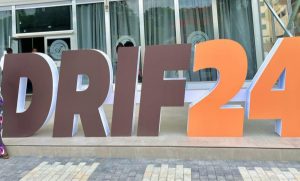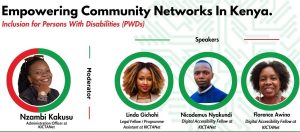By Nicodemus Nyakundi
How can we ensure a sustainable, human-centred digital economy? Would giving guidance and regulations help solve challenges and create opportunities in the online gig economy?
These are the key questions that shaped the discussions during the multi-stakeholder dialogue on pathways toward a sustainable regulation of online platform work in Kenya.
The Alexander von Humboldt Institute for Internet and Society, GIZ Kenya, the Digital Transformation Centre, and the Gig Economy Initiative of Digital Global convened the forum.
Online-mediated work is global, and Kenya is one of the top-ranked countries in online freelancing destinations for writing and translation works in this space. Opportunities are growing due to the demand for remote jobs, the COVID-19 effect, and accelerated automation.
It is worth noting that remote work and digitization pose important challenges, including creating a global divide on regulations, urban-rural divisions within countries, skill-based divisions between occupation and wages, and the ethical issues around them.
As such, there is a demand for policies and regulatory frameworks to ensure the sustainability of the platforms. Among these are improving the online work infrastructure, reskilling, and overall platform regulation.
Prof. Tom Kwanya from the Technical University of Kenya could not agree more that we need policies on these online platforms to help balance workers’ rights and gender issues. This is because Kenya is a top technology hub in sub-Saharan Africa and most online workers are primarily male and close to 72℅.
Issues of accessibility and inclusivity also stood out. Panellists noted the need to facilitate inclusivity by ensuring equality and equity in online work platforms. In addition, the need to diversify research elements toward a complete representation of the general population of gig platforms.
Otherwise, this would widen the marginalization gap, a divide that Kictanet has advocated through initiatives like the Gender Internet Governance Exchange Workshop for Structurally Silenced Communities and the ICT Access and Equality for Persons with Disabilities (PWDs) in Kenya.
Globally, online labour markets are dynamic, and given the importance of the Kenyan market, we should design programs, create policies and regulations, and use data science to inform policy.
These will form the basis for regulating social protection, ensuring feasible mentorship and skill transfer plans, protecting against OGBV and cyber threats, promoting inclusivity, and implementing labour laws on gig platforms.
Nicodemus Nyakundi is an ICT Access and Equality Fellow for PwDs at KICTANet. He has a background in Information Technology.
![]()




